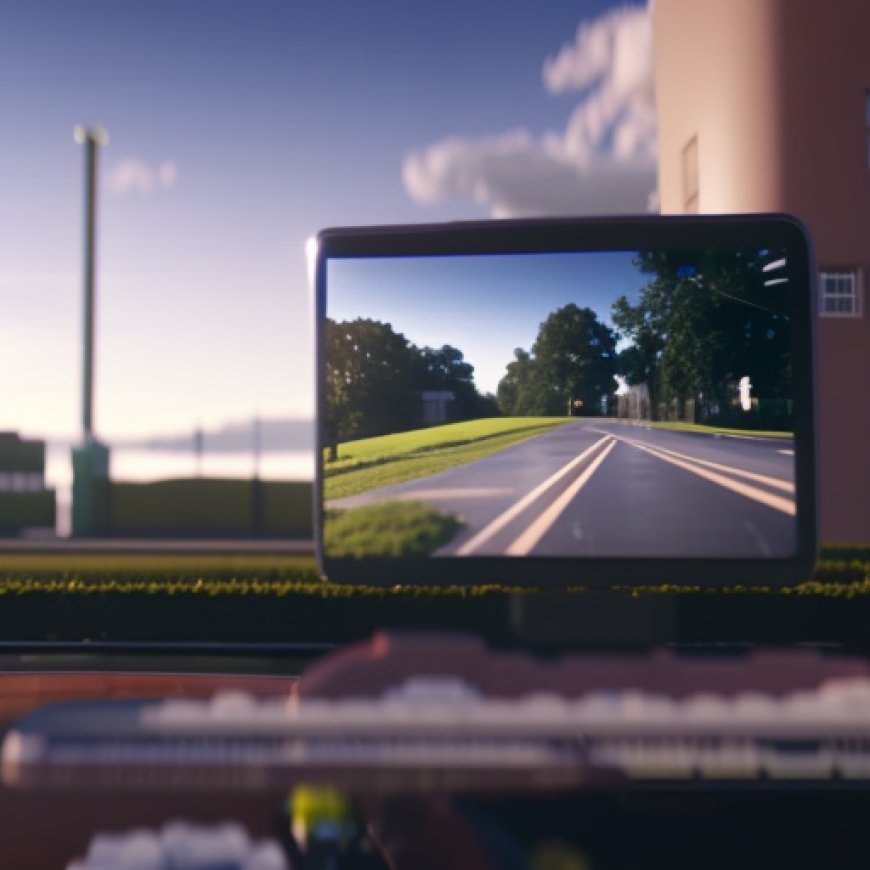Brunswick Student’s Non-Profit “Green Greenwich” Seeks to Reduce Town’s Carbon Footprint and Energy Consumption
Brunswick Student's Non-Profit “Green Greenwich” Seeks to Reduce ... Greenwich Free Press


Passionate Teenager Takes Action for Sustainable Change in Greenwich
By Juliet Winegardner, Greenwich Academy Class of 2024
Asher Benn, a rising senior at Brunswick School, has always been passionate about the outdoors. However, after taking an AP Environmental Science (APES) class this past school year, his passion turned into a drive to make real sustainable change in Greenwich.

“What is so good about APES is the information is presented in such a palpable way, and when you do look over the facts it becomes very clear how prevalent of an issue climate change is,” Benn says. “It felt very clear to me that environmentalism was a movement I really connected with. I felt the information presented in the course was very straightforward and I was surprised that there weren’t more charitable movements devoted to conservation in Greenwich, especially student-led ones.”
“I felt like I had a responsibility to do something about it; I was informed, I got to take the class and learn about this current events issue and I wanted to make some sort of impact.”

Green Greenwich: A Non-Profit for Sustainable Change
With his passion and newfound knowledge of climate change, Benn founded Green Greenwich, a local non-profit created to help reduce the carbon footprint and energy consumption in Greenwich.
“I first created our website. I wanted to make this information as accessible as possible,” says Benn. “I focused on energy conservation because it makes up the largest portion of anthropogenic greenhouse gas emissions. I created an informative page on my website trying to draw people in with interesting facts about Greenwich and our energy consumption.”
The Light Bulb Project: Tackling Energy Conservation
Green Greenwich’s first initiative, titled The Light Bulb Project, aims to tackle energy conservation in Greenwich head-on by encouraging local businesses to switch to LED lightbulbs.
“LED lights are 90% more efficient and they last 25 times longer than halogen light bulbs. When you do this on a larger scale, like a retail store or restaurant, you can make a significant reduction in your energy consumption, which in turn has a reduction in your carbon emissions.”
However, according to Benn, seeing this initiative through has not been easy.
“Environmental advocacy is really hard. People have their traditional business practices and, rightfully so, they are stubborn about change,” he says. “They’re also hard to reach out to. I’ve sent hundreds of emails to local businesses and have received limited responses…I’ve realized the best way is going into stores, introducing yourself, and trying to create a dialogue.”
Some local businesses that have already made the switch to LED lights are All Birds, Grigg Street Pizza, Corbo’s Corner Deli, Blankenship Dry Goods, and La Taqueria.
Benn is hopeful that despite setbacks, he will be able to encourage local businesses to make the change.
The Pledge: Adopting Sustainable Practices
Recently, Green Greenwich has transitioned to its second initiative, The Pledge. The Pledge’s main goal is to invite local businesses to commit to adopting new sustainable practices specific to them.
“These sustainable practices can vary depending on the business,” Benn says. “For a restaurant using paper plates, it means trying to get them to switch to biodegradable or compostable plates. Or trying to eliminate the use of plastic bags and straws.” Green Greenwich also encourages instituting a cycle, walk, or public transit to work day/program, and the installation of solar panels. “A business would adopt a couple of these practices, and our role would be to promote them as much as possible…people would be able to identify businesses that have sustainable practices and are working towards minimizing their impact. I mean that is the overall goal of this: doing everything we can.”
Working Towards Sustainable Change
Joining the Green Greenwich team are fellow members of the class of 2024, Jack Morningstar from Brunswick School, and Lauren Hawks from Greenwich Academy. Together, these teens work hard to make long-lasting sustainable changes in Greenwich.
SDGs, Targets, and Indicators
| SDGs | Targets | Indicators |
|---|---|---|
| SDG 7: Affordable and Clean Energy | 7.3: Double the global rate of improvement in energy efficiency | The adoption of LED lights by local businesses to reduce energy consumption |
| SDG 11: Sustainable Cities and Communities | 11.6: Reduce the adverse per capita environmental impact of cities | The adoption of sustainable practices by local businesses, such as using biodegradable or compostable plates and eliminating plastic bags and straws |
| SDG 13: Climate Action | 13.2: Integrate climate change measures into national policies, strategies, and planning | The reduction of carbon emissions through the use of LED lights and other sustainable practices |
1. Which SDGs are addressed or connected to the issues highlighted in the article?
- SDG 7: Affordable and Clean Energy
- SDG 11: Sustainable Cities and Communities
- SDG 13: Climate Action
2. What specific targets under those SDGs can be identified based on the article’s content?
- Target 7.3: Double the global rate of improvement in energy efficiency
- Target 11.6: Reduce the adverse per capita environmental impact of cities
- Target 13.2: Integrate climate change measures into national policies, strategies, and planning
3. Are there any indicators mentioned or implied in the article that can be used to measure progress towards the identified targets?
- The adoption of LED lights by local businesses to reduce energy consumption is an indicator of progress towards Target 7.3.
- The adoption of sustainable practices by local businesses, such as using biodegradable or compostable plates and eliminating plastic bags and straws, is an indicator of progress towards Target 11.6.
- The reduction of carbon emissions through the use of LED lights and other sustainable practices is an indicator of progress towards Target 13.2.
Behold! This splendid article springs forth from the wellspring of knowledge, shaped by a wondrous proprietary AI technology that delved into a vast ocean of data, illuminating the path towards the Sustainable Development Goals. Remember that all rights are reserved by SDG Investors LLC, empowering us to champion progress together.
Source: greenwichfreepress.com

Join us, as fellow seekers of change, on a transformative journey at https://sdgtalks.ai/welcome, where you can become a member and actively contribute to shaping a brighter future.







